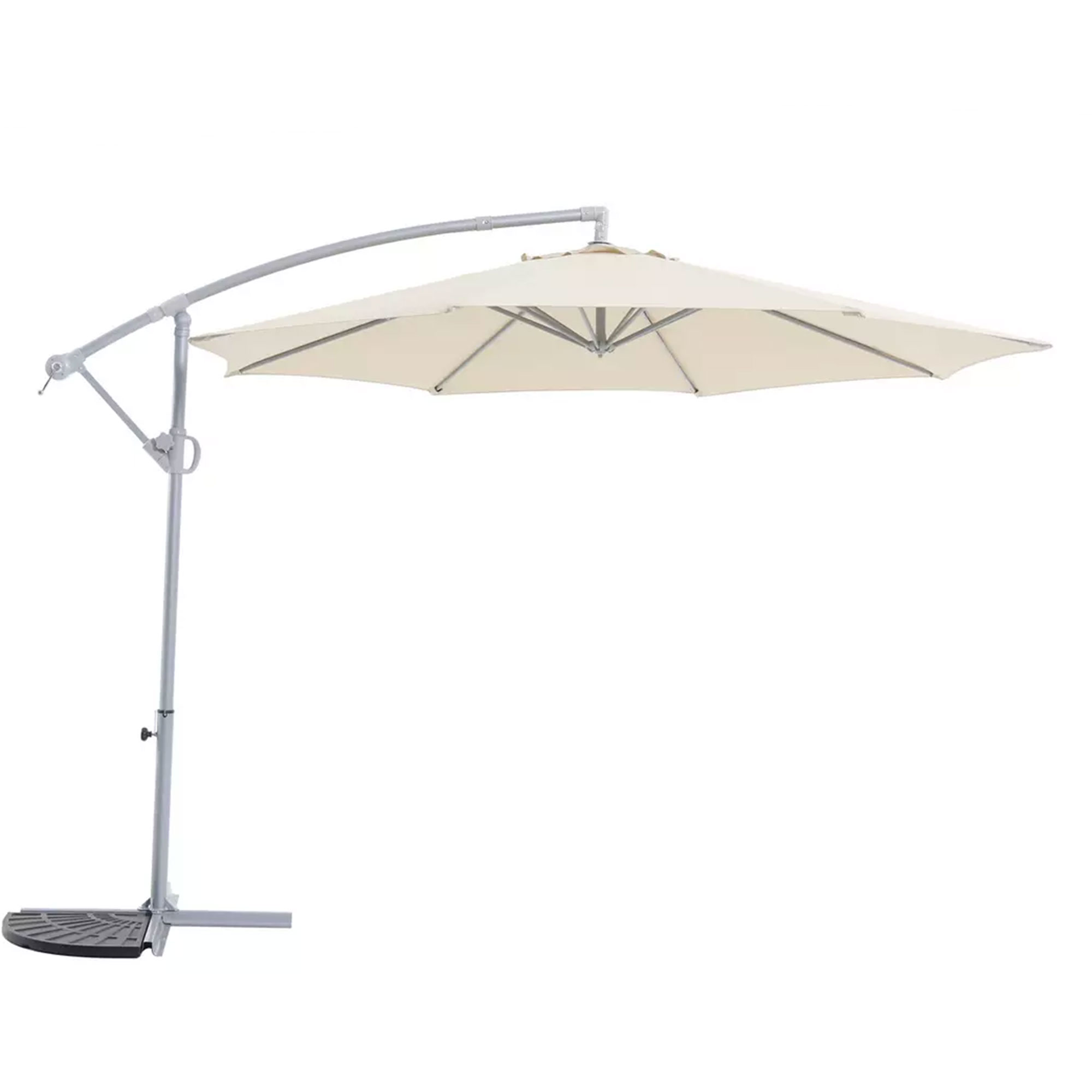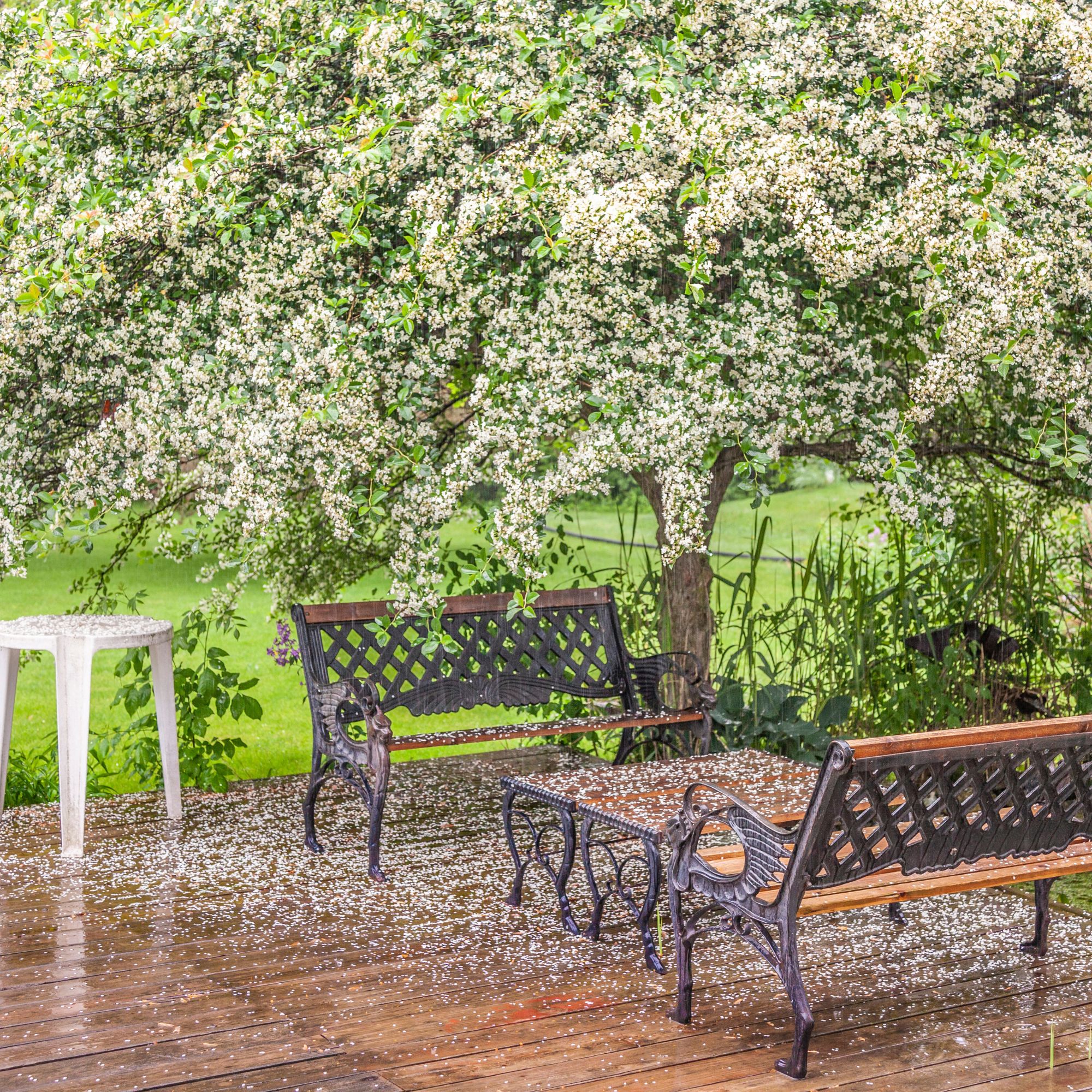10 garden canopy ideas to shelter your outdoor space this summer
Shade from sun or shelter from rain in style
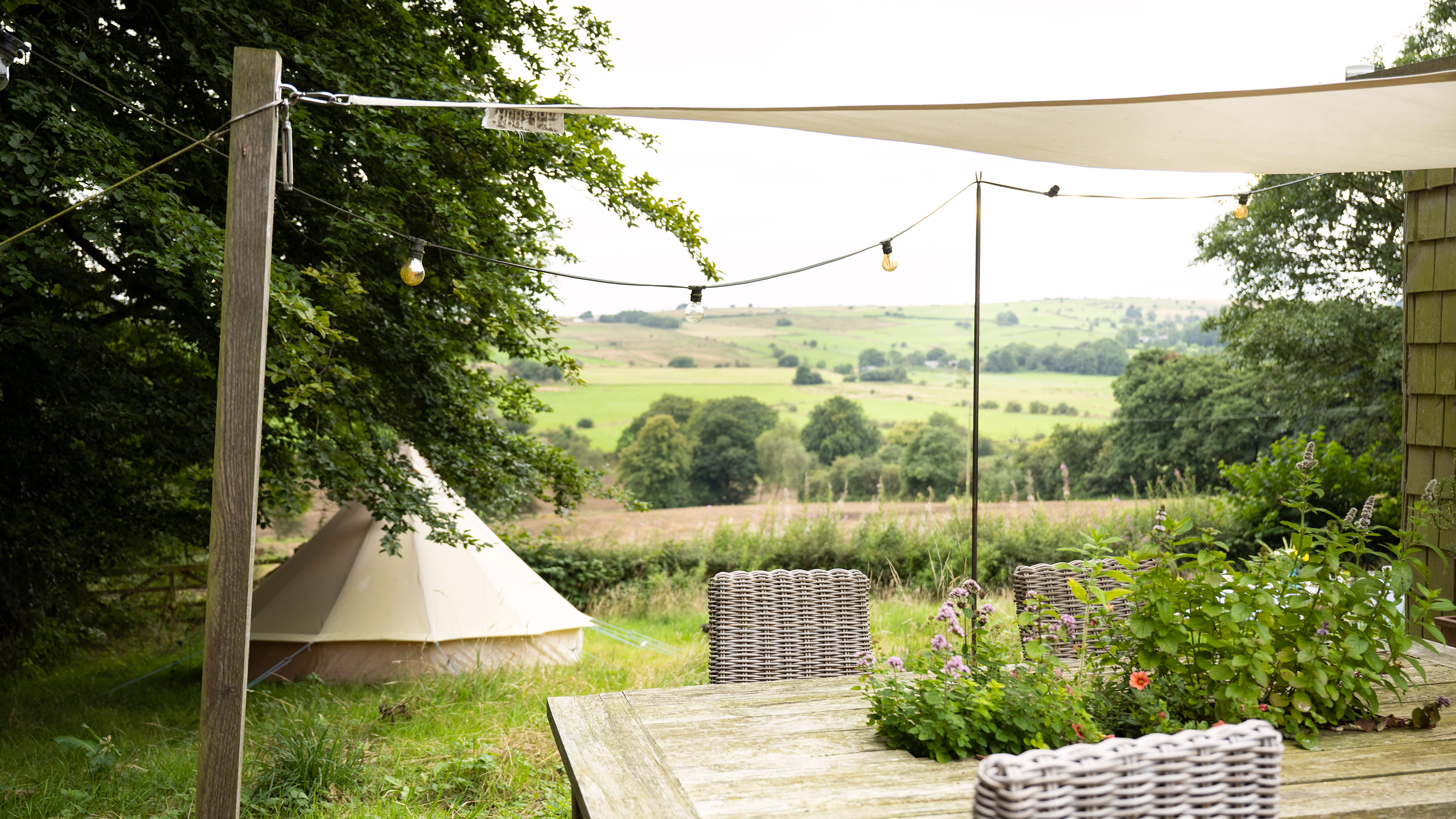
A carefully positioned shady area, when the sun is shining outside, offers no better tonic to sit in your garden and enjoy the glorious summer months. And, being realistic, it's just as great to ensure you have a space to sit outdoors without getting pelted by rain on those wet but humid days.
But what to choose to create your garden shelter ideas? Depending on what you chose, a canopy could provide refuge year-round, so finding the best material or structure to protect yourself from harmful UV rays and provide shaded areas is important
'When it comes to finding the right outdoor structure for your garden, there are a few key considerations to take into account to help you pick the right one,' says Reilly Gray, co-founder at Suns Lifestyle. So we've rounded up everything you need to know and our favourite garden canopy ideas to get you started.
1. Make a canopy of climbing plants
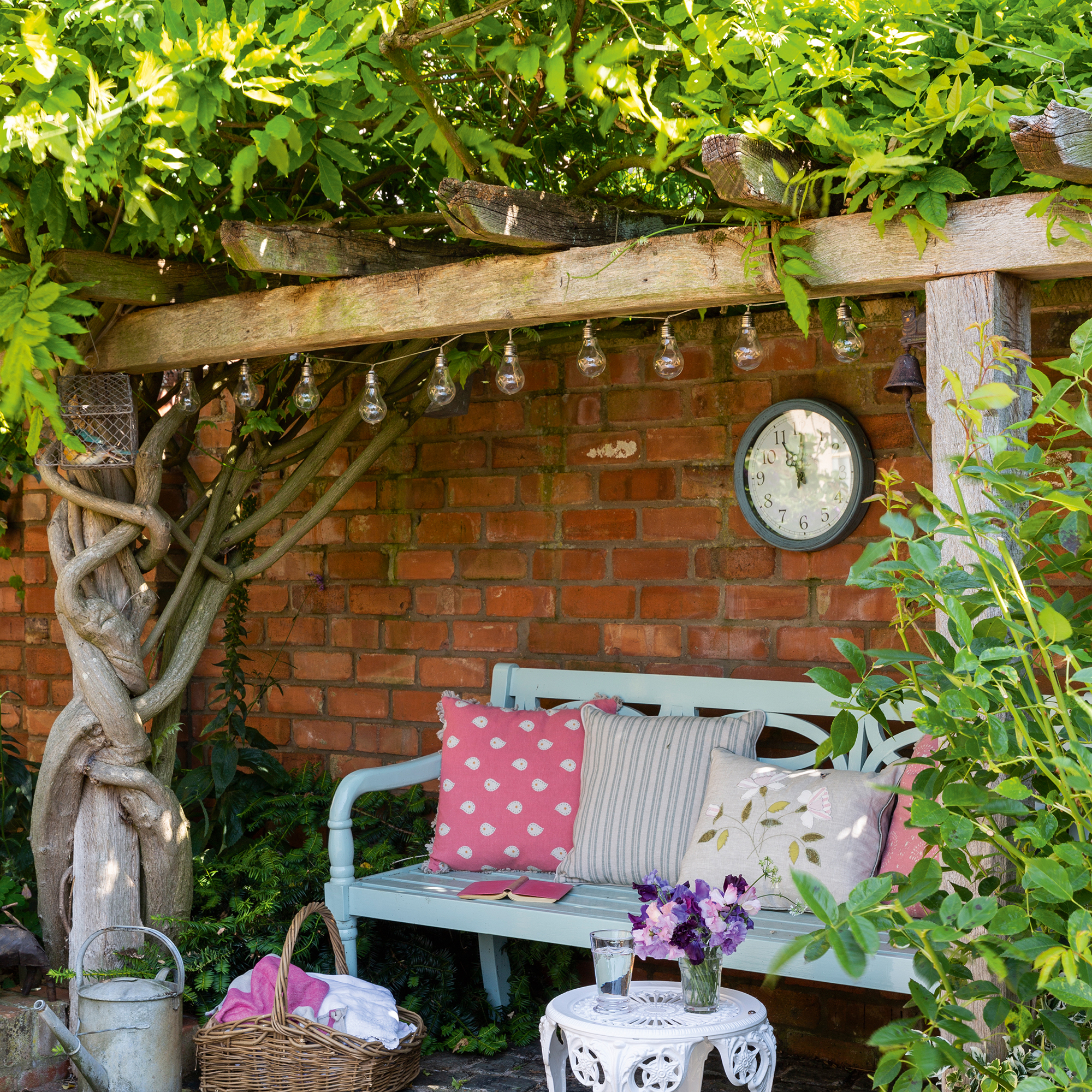
For garden designer Libby Russell, director at Mazzullo + Russell Landscape Design, her Wisteria floribunda ‘Longissima Alba’, creates the ultimate canopy of natural shade, and is established across a more traditional pergola frame.
'I have a simple metal pergola over our outside dining area which supports my beautiful white wisteria and gives dappled shade throughout summer, it is also interwoven with apricot climbing roses which is just a joy.'
Encouraging a climbing plant like wisteria, roses or honeysuckle can create a beautiful natural canopy of flora and scents.
2. Opt for a sail

A sail canopy will create an attractive shaded zone for a comfortable spot to laze or picnic under, or even grab your computer and work outside. A sail is the modern version of a canopy and is easy to put up, triangular like a sail, the three corners can be attached to trees, hooks on a fence or wall or even propped up with freestanding poles making the canopy sail a practical solution for most any size or shape garden.
Sign up to our newsletter for style inspiration, real homes, project and garden advice and shopping know-how
3. Put up the perfect parasol
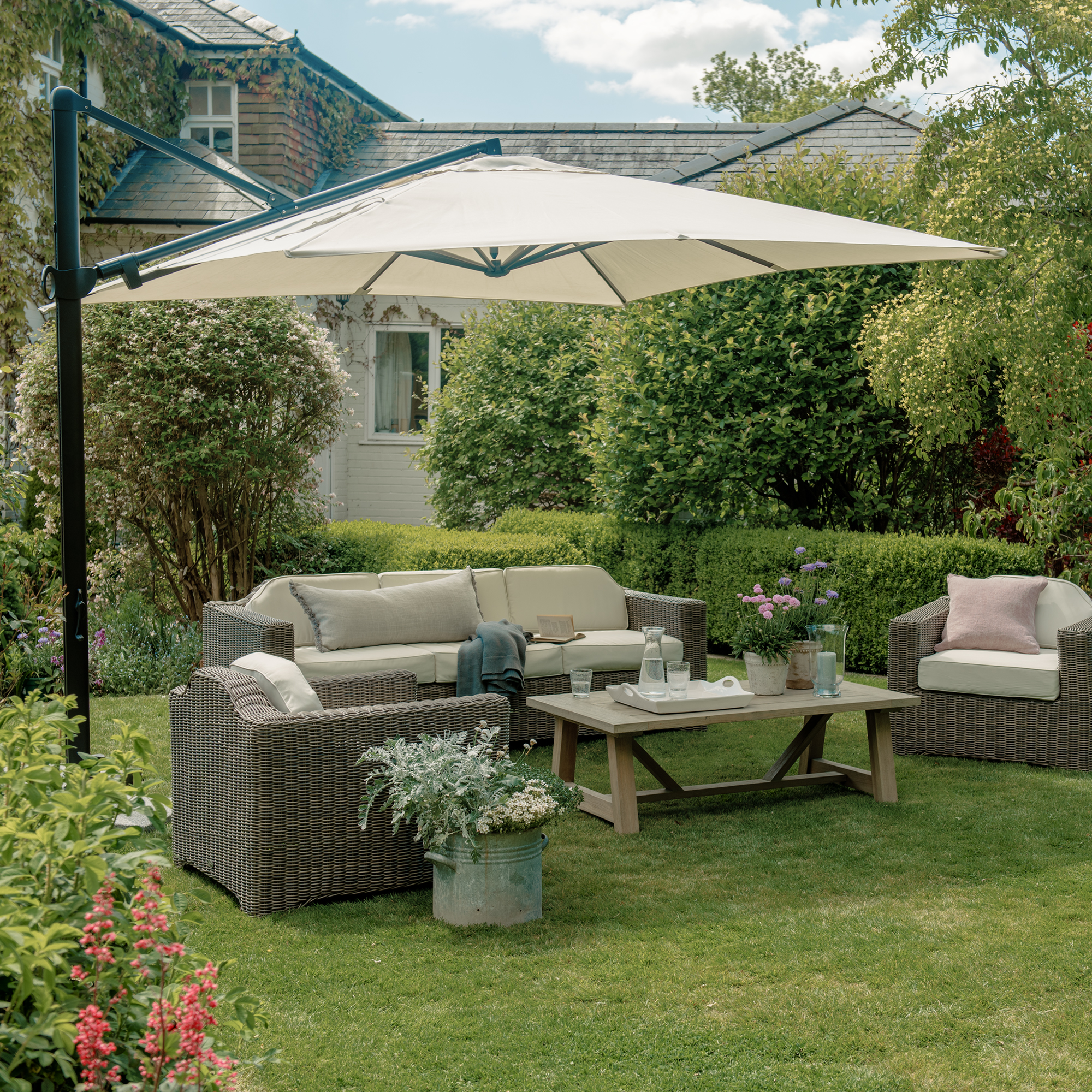
Traditionally a parasol was the original garden canopy, and it still offers a simple solution for summer dining and relaxing. Practical, affordable, and infinitely pretty, the parasol is a great fix for a bright day in the garden. The range of colours and details makes it a simple and stylish addition, the colours, and tassels available allows you to match the parasol to your chair seats or even your roses or lavender.
If you are on a budget a parasol is a great solution, it can be installed in the centre of a dining table or stand-alone with a base, allowing you to move and position it as you need for eating, working, or shading. Quick to remove and store, they fit well in large or small gardens and are useful if you are renting or you do not have much outdoor space.
Just make sure you're not making the mistake of placing it in one of the worst places to put a parasol!
4. Add an awning
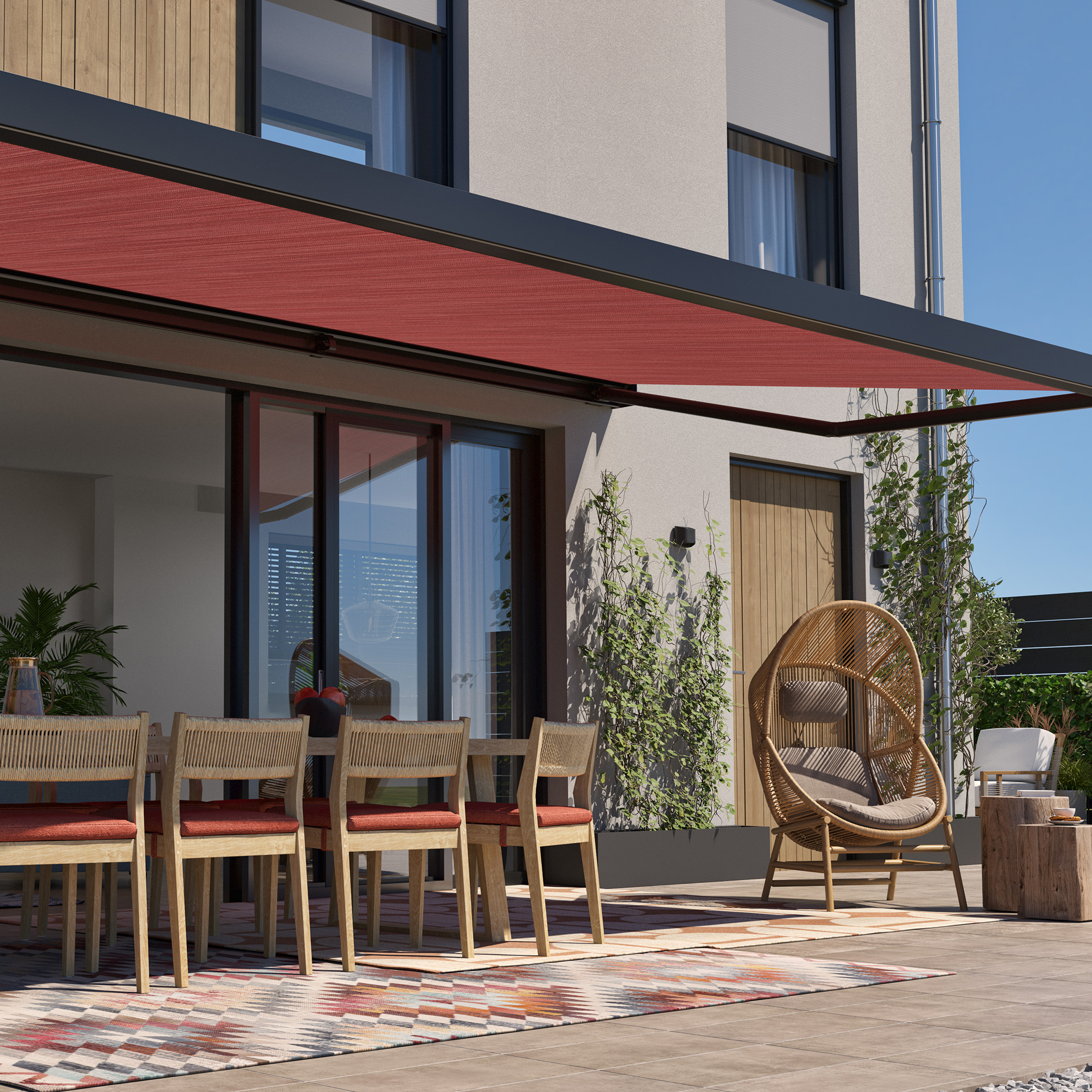
A canopy awning offers a semi-permanent structure but takes up less room than a traditional pergola structure easily creating an outdoor shelter that is functional year-round. This makes them an especially great patio cover idea.
'Awnings are a cost-effective way to create a shaded area outside, with minimal wall space,' says Daniel from Luxaflex. 'Not only will an awning add a Mediterranean flavour to your outside garden or patio, but there are benefits to solar shading, including blocking the sun’s rays and reducing the amount of heat entering your home.'
Awnings need an exterior wall to be attached to the colour choices can be chic in simple whites or black, or select something more dynamic with bold colours or stripes.
5. Shade it with tassels
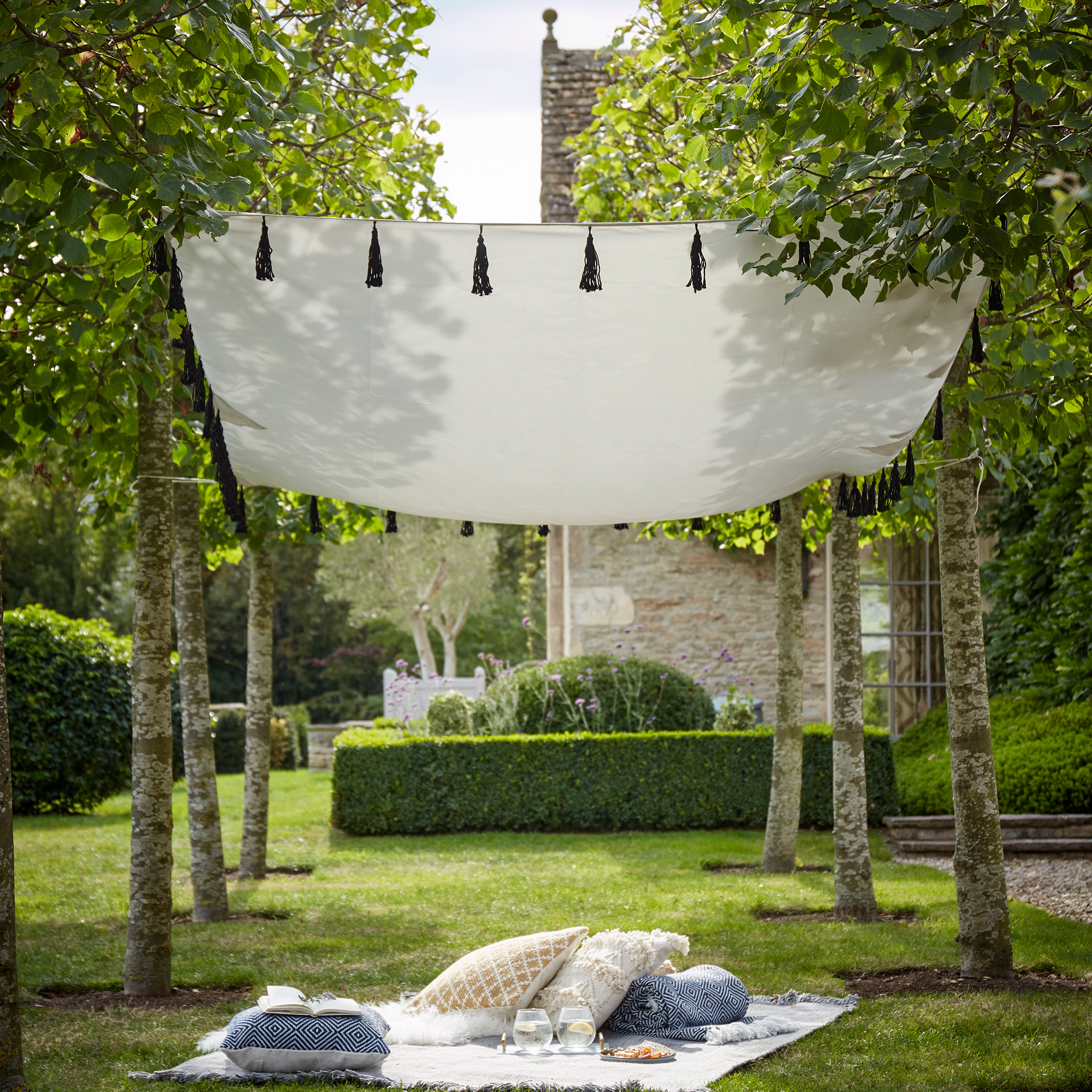
A tasselled canopy is great for stringing up between trees or slung beneath a metal gazebo to provide shelter from light rain. This square tasselled canopy from Cox and Cox is an elegant and functional solution for adding light shade to your garden on a summer day. Versatile and stylish, it is perfect for both large and small gardens.
6. Build a year-round canopy
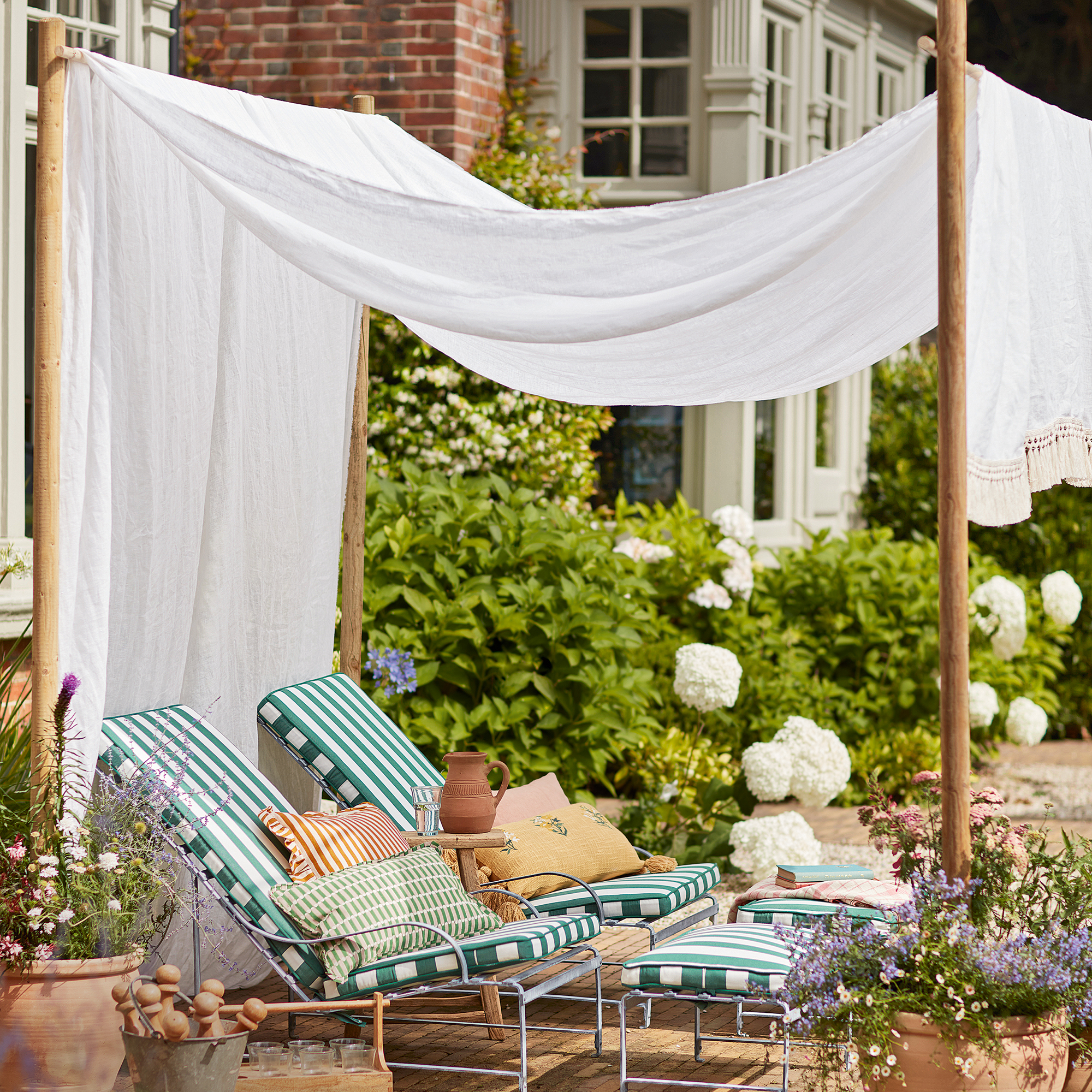
A canopy tends to be a lightweight movable shade, like a sail or parasol but it can become something more permanent if you want to create an environment that offers year-round shelter.
Based on the shape of a pergola with four upright structures in each corner and connected with a pole, rather like a grand four poster bed, these simple vertical poles can be as elaborate designed from metal or wood or as simple as you wish. Between them you can drape a large water-proof canopy, like a sheet to produce an intimate and romantic shelter underneath.
7. Plant a natural canopy of trees
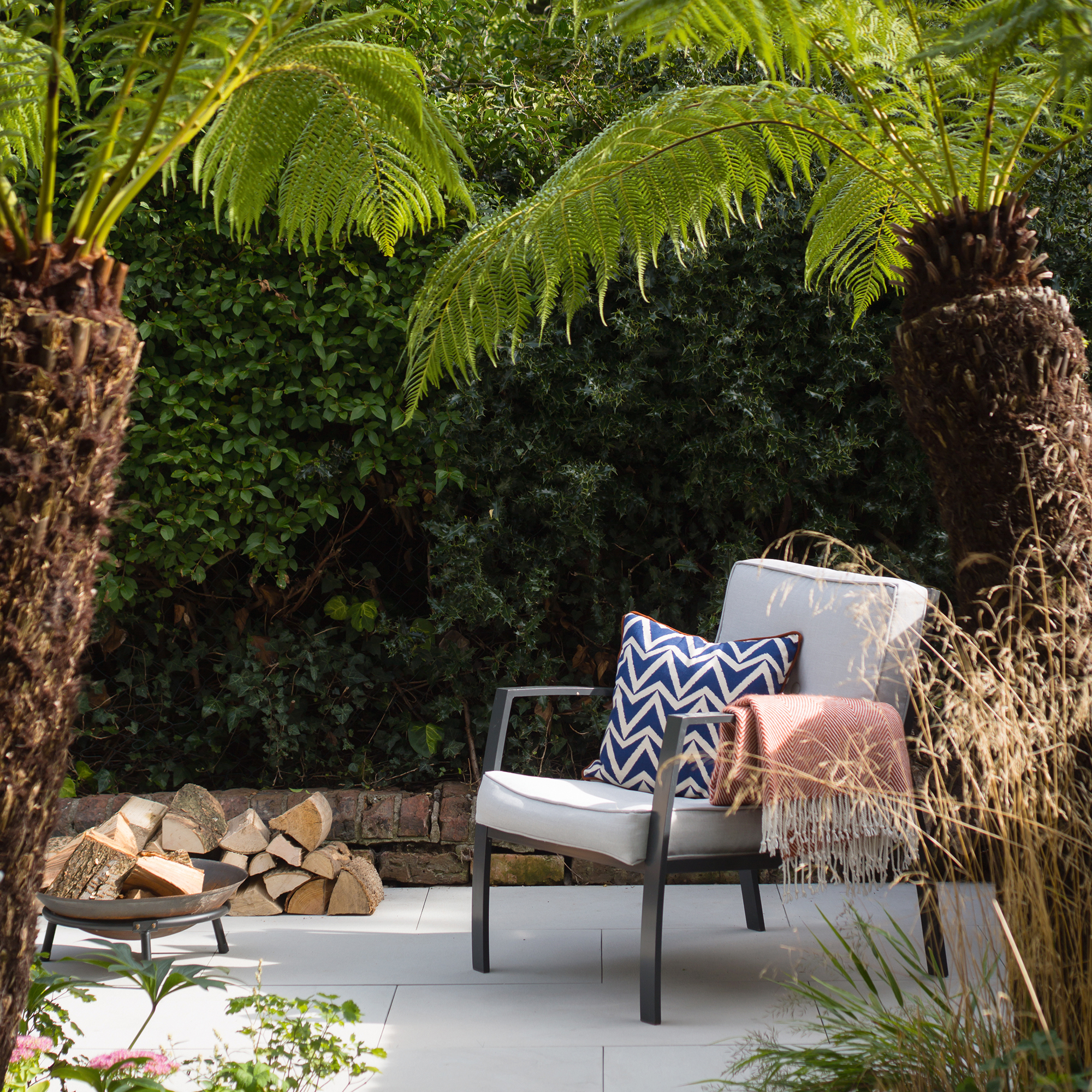
'The provision of shade is already one of the most important aspects of landscape design, but getting built structures to do exactly what you want them to do, and still look aesthetically pleasing is more challenging,' explains garden designer Miria Harris, 'Although I do design pergolas, arbours, and gazebos for many clients, I often lean towards the natural shade of a tree. It allows us the freedom to move around and find our own perfect spot to cool down.'
'Umbrella or Parasol trees are a fantastic way to create shade in a garden, and using deciduous trees such as lime means that light is not blocked over the winter months, but shade is provided in summer,' agrees garden designer Eliza Gray
Fast-growing privacy trees will do the trick nicely, here.
8. Consider a pop-up canopy
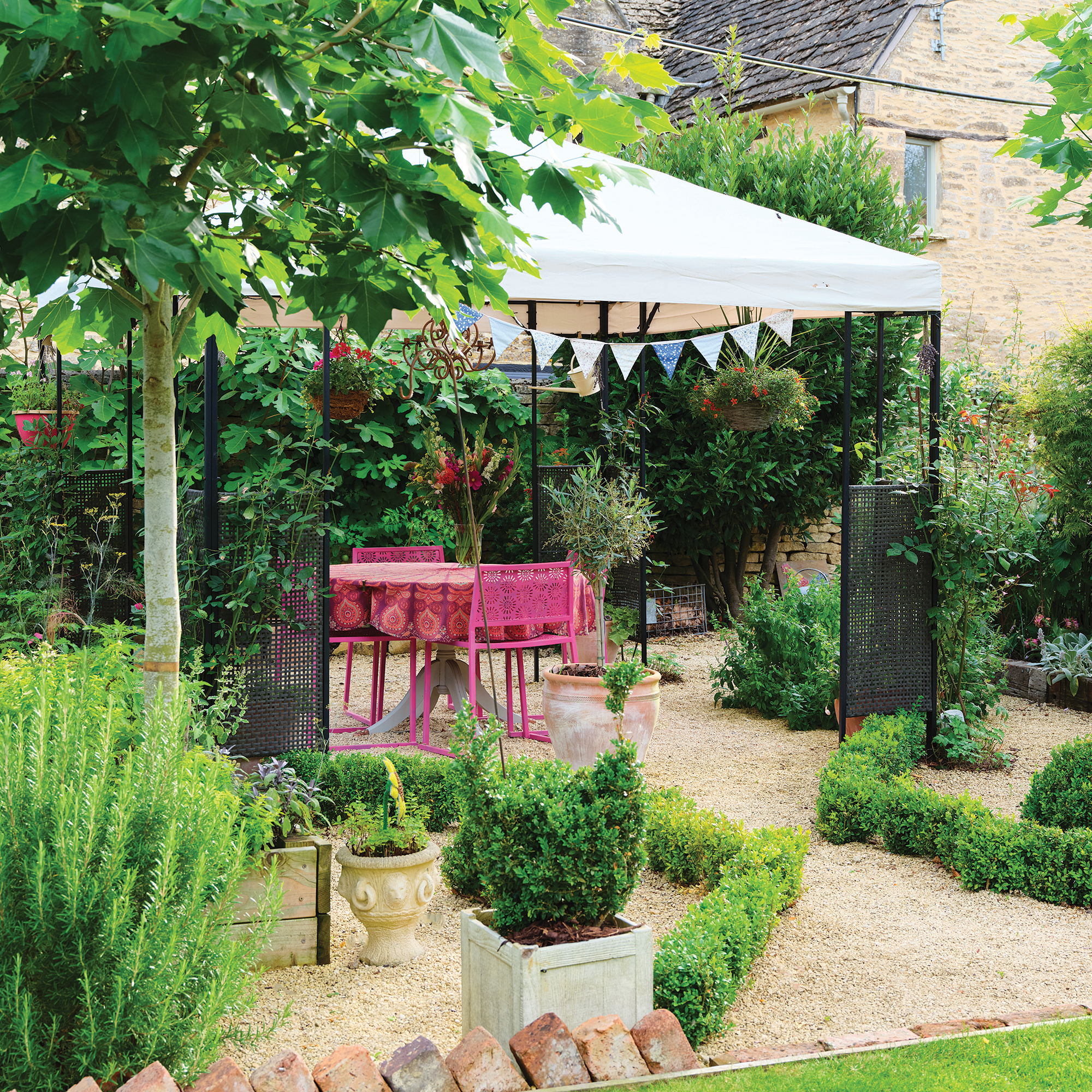
If you are hosting a garden party or enjoying a quiet afternoon outdoors, a pop-up canopy with a gazebo structure can enhance your outdoor space with charm and practicality and can be put away when the sun goes in. Make sure it is big enough to fit your furniture underneath and consider the movement of the sun throughout the day to make the most of your position.
9. Build a timber canopy over seating
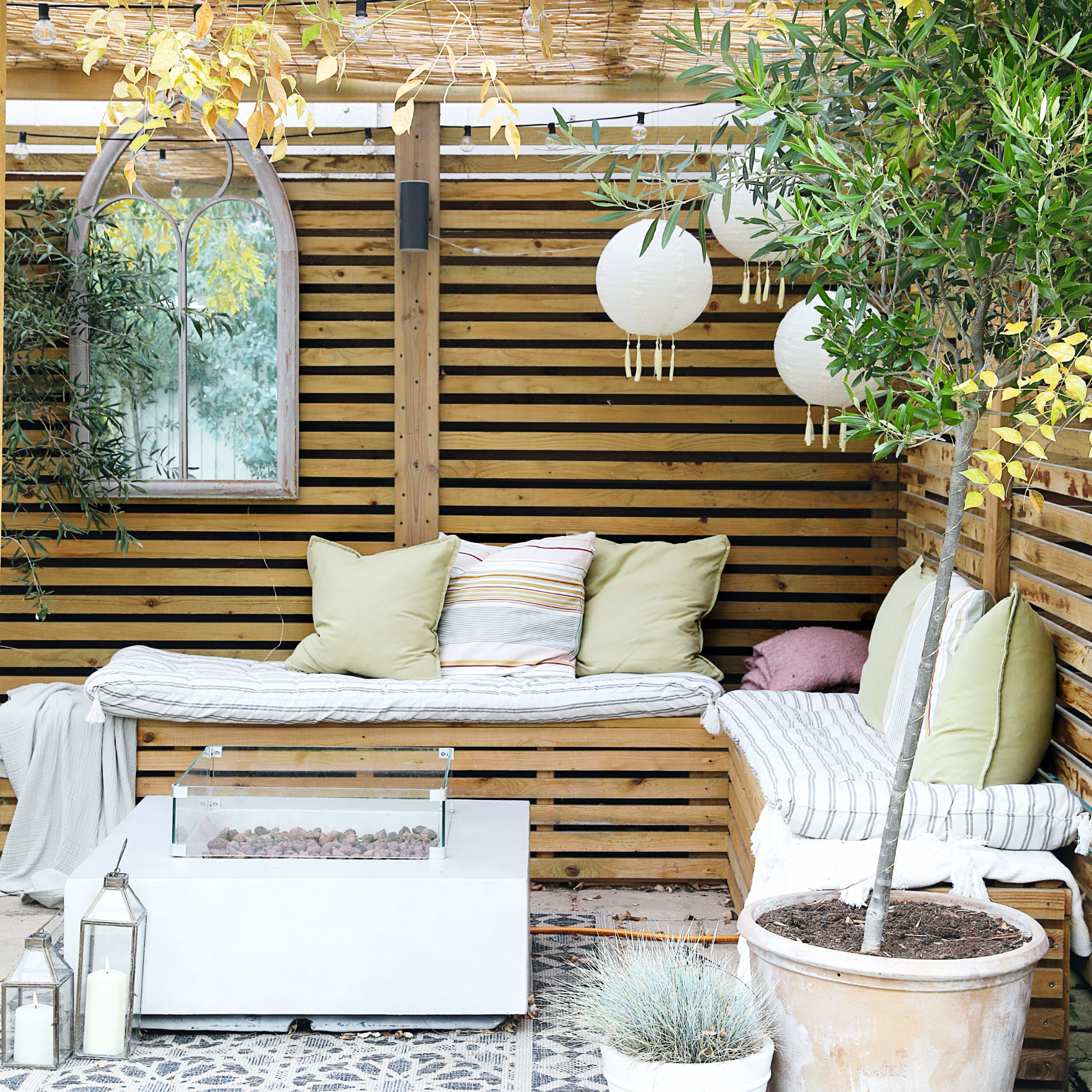
A timber framed canopy can be built over your seating or patio area, add a fabric canopy looped between the beams or stretched over for seriously hot days, or train a climbing plant to gently wind its way up.
A timber frame can be freestanding or attached to your home, depending on the space you have. This structure will shelter you in all-weather making the extra cost an investment in the garden
10. Make the most of existing trees
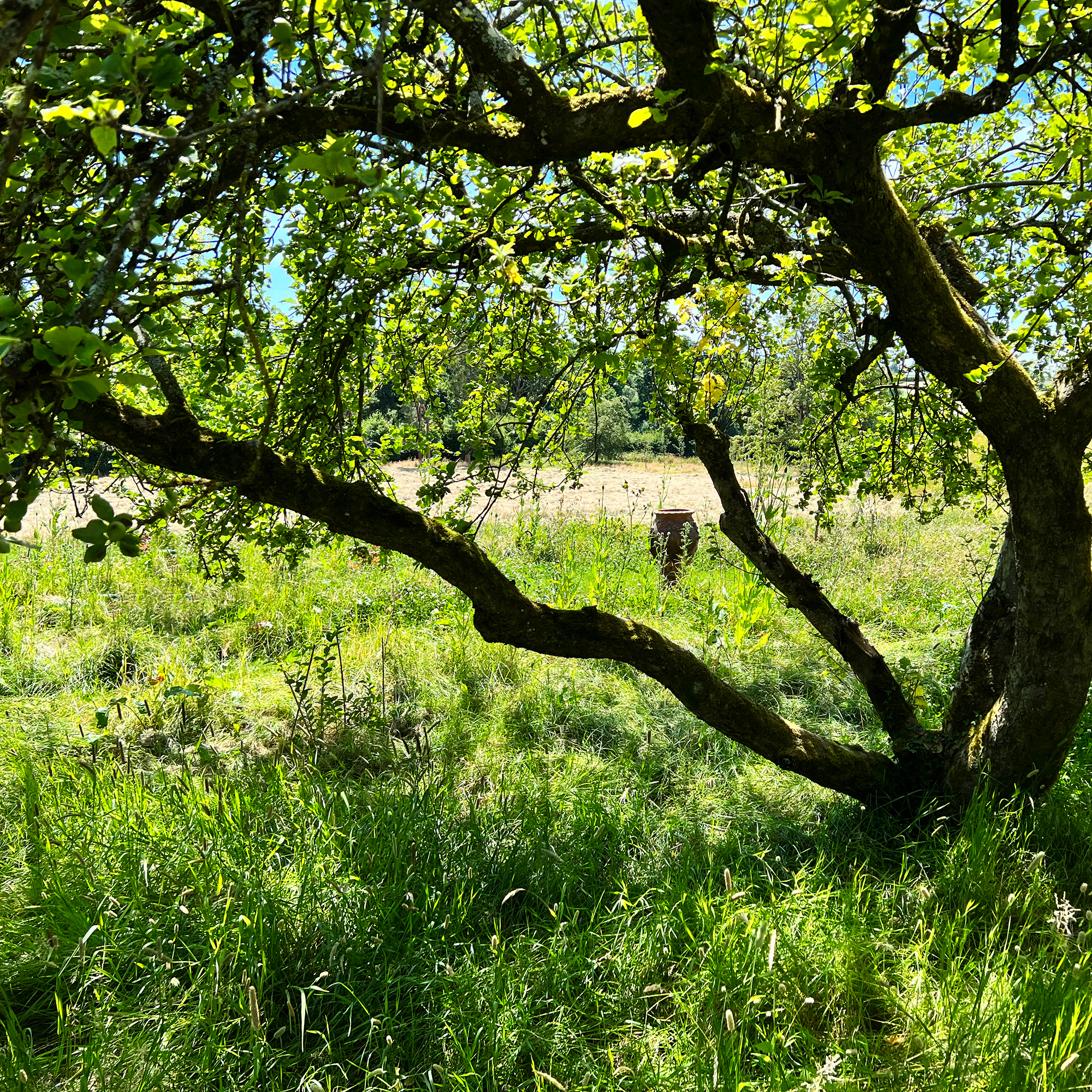
'Dappled shade across the dining area makes eating outside so much more enjoyable and romantic, the Japanese even have a word dedicated to this type of shade – Komorebi –meaning the deliberate placement of a tree and consideration of the direction of the sun to cast shade over an area of the garden,' explains garden designer Andrew Duff, who will always try to incorporate an existing tree into a new design for a client.
'Some of the trees I encounter on site are maybe 50 or even 100 years old and so therefore it seems respectful to incorporate them into the overall scheme.' So if you can you could move your seating area to be based underneath the trees that are already in situ in your garden.
FAQ
What is the difference between a canopy and a pergola?
Like with the difference between a gazebo and a pergola, there are some factors which separate canopies from pergolas, too.
A canopy provides overhead protection and comes in a range of shapes and sizes, from sails and sheets, to umbrellas and retractable awnings or the natural canopy of trees. A pergola is a permanent structure built in one area of the garden to provide year-round shelter, a pergola often has walls and occasionally a floor.
In contrast a canopy can offer a far simpler solution, from a waterproof cotton fabric hung between trees to a canvas sail shape stretched across a patio. Canopies create an elegant temporary tone and because they are generally made from fabric lend a softness to garden design.
Whether you choose to try simple garden canopy ideas that can be put up and removed at whim or something more permanent, both will give you the opportunity to spend more time outside, maximising the potential of your entire home and your garden.

